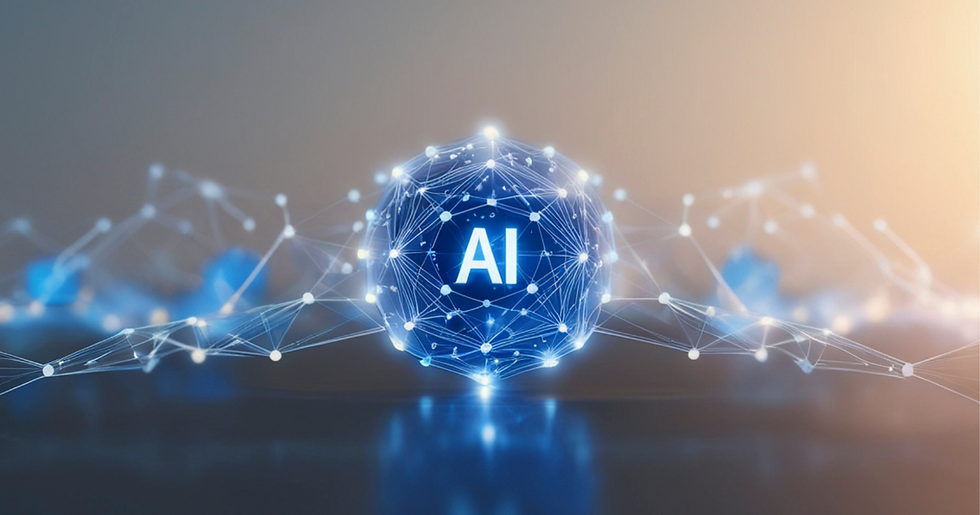Artificial Intelligence (AI) – a look ahead to what 2024 holds
- Needling Worldwide
- Jan 30, 2024
- 3 min read
Updated: Jun 19, 2024
During 2023, the AI landscape absolutely exploded. AI is currently poised for significant use that promises to accelerate its integration into society and the cyber security world in 2024.
Have you ever wondered what AI actually means? AI refers to the simulation of human intelligence and machines programmed to think and learn exponentially faster than humans. AI is powered by advanced algorithms and massive data sets, enabling these data sets to be analyzed, predicted, and adapted to various situations. Below is a brief overview of the primary types of algorithms currently being used:
Supervised learning: this focuses on labeled data. Essentially, by providing the input and desired output, the algorithm is designed to map inputs to outputs, allowing the AI to make predictions based on various patterns observed.
Unsupervised learning: this approach consists of teaching AI systems on unlabeled data with the goal of discovering hidden patterns or structures within the data sets. An example of this is clustering and dimensionality.
Reinforcement learning: this approach works to train the AI agents to make sequences of decisions within a structured environment to maximize a reward. The agents basically learn through trial and error.
Semi-supervised learning: this approach combines elements of both supervised and unsupervised learning. It uses a very small amount of labeled data, and a large amount of unlabeled data to train the system. This method can be very expensive and time-consuming.
Deep learning: this approach consists of a subset of machine learning that focuses on deep neural networks in which the AI system can learn very complex representations of the data.
Deployment of the AI model
Once the AI model is trained based on the above scenarios, it’s ready for deployment and testing. The goal is to make predictions on new and unfamiliar data. These phases involve scalability, real-time inference as well as monitoring and maintenance. In essence, all these phases are necessary to maintain consistency and reliability for the future of machine learning.
How organizations are now using AI to evolve into society
Below are a few points being undertaken by many organizations today:
Deep learning, which consists of image and speech recognition inspired by the function of the human brain.
Natural language processing, which consists of understanding the context of words in a sentence and analyzing as many as 100 search engines in seconds to generate human-like texts.
Healthcare, where algorithms can compare patient data and massive data sets instantly to help detect diseases like cancer and diabetes at early stages. In addition, these algorithms are actively being used to identify thousands of drug candidates and improve overall patient outcomes statistically. This is based upon active monitoring of feedback received from the health care facilities.
Climate change: by analyzing massive data sets of historical climate data, scientists can provide more accurate predictions of future climate trends.
Finance and investment: using the trading algorithms used by financial institutions to provide real-time information for profitable opportunities.
Autonomous systems: this is being explored within the automotive industry for self-directed cars and delivery drones to eliminate human errors and increase efficiency.
What to expect in 2024
Depending on their experience with AI, many individuals will either be absolutely opposed to it or they will welcome the much-needed help. AI won’t be for everyone, especially not those with old-school habits, but it’s here regardless. Many in the private sector, Fortune 500 companies, and federal government agencies are actively and aggressively pursuing AI now. This is evidenced by such copious job postings on their websites. The demand for AI professionals will absolutely skyrocket. This includes data scientists, machine learning engineers, and AI developers with cloud cyber security experience.
The question is not whether AI is part of the upcoming future, but rather how will you as an organization meet the upcoming demands related to AI. Another principal concern is how your organization is planning to prepare for the audits for security compliance, as well as understanding the skill set for hiring these types of professionals.
.png)



Comments